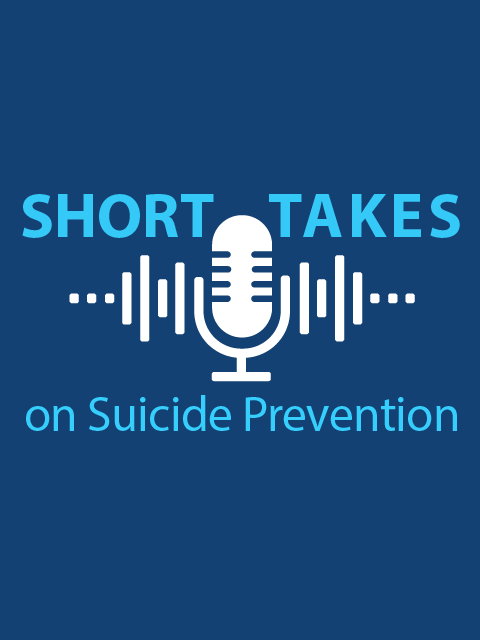MIRECC / CoE
8: Collaborative Assessment and Management of Suicidality (CAMS)
Risk Management and Treatment » Non-pharmacologic Interventions
8: Collaborative Assessment and Management of Suicidality (CAMS)
There is insufficient evidence to recommend for or against Collaborative Assessment and Management of Suicidality to reduce suicidal ideation.
Strength:
Neither for nor against
Category:
ReviewedNew-added
Grades and Definitions
- Strong for
- or "We recommend offering this option …"
- Weak for
- or "We suggest offering this option …"
- No recommendation
- or "There is insufficient evidence …"
- Weak against
- or "We suggest not offering this option …"
- Strong against
- or "We recommend against offering this option …"
Categories and Definitions |
||
|---|---|---|
| Evidence Reviewed* | Recommendation Category* | Definition* |
| Reviewed | New-added | New recommendation following review of the evidence |
| New-replaced | Recommendation from previous CPG that has been carried over to the updated CPG that has been changed following review of the evidence | |
| Not changed | Recommendation from previous CPG that has been carried forward to the updated CPG where the evidence has been reviewed but the recommendation is not changed | |
| Amended | Recommendation from the previous CPG that has been carried forward to the updated CPG where the evidence has been reviewed and a minor amendment has been made | |
| Deleted | Recommendation from the previous CPG that has been removed based on review of the evidence | |
| Not reviewed | Not changed | Recommendation from previous CPG that has been carried forward to the updated CPG, but for which the evidence has not been reviewed |
| Amended | Recommendation from the previous CPG that has been carried forward to the updated CPG where the evidence has not been reviewed and a minor amendment has been made | |
| Deleted | Recommendation from the previous CPG that has been removed because it was deemed out of scope for the updated CPG | |
| *Adapted from the NICE guideline manual (2012): The guidelines manual. London: National Institute for Health and Care Excellence;2012. and Martinez Garcia L, McFarlane E, Barnes S, Sanabria AJ, Alonso-Coello P, Alderson P. Updated recommendations: An assessment of NICE clinical guidelines. Implement Sci. 2014;9:72. | ||
Recommendation Resources
The Collaborative Assessment and Management of Suicidality (CAMS) is a suicide-focused therapeutic framework aimed at decreasing suicidal ideation while increasing hope and reasons for living. Guided by the Suicide Status Form (SSF), therapists using CAMS work cooperatively with patients to identify and treat the patient’s specific drivers of suicide.
Training and Clinical Resources
This section includes training and/or clinical resources about CAMS.
- CAMS-care: Preventing Suicide
- CAMS Training & Certification
Clinicians Building Confidence with CAMS
Manuals
This section includes recommended manuals about CAMS.
- CAMS-care: Preventing Suicide
- Suicide Status Form (SSF)
Videos
This section includes recommended videos about CAMS.
- Managing Suicide Risk Using the CAMS Framework
Books
This section includes recommended books about CAMS.
Return to Resource OptionsWebinars
This section includes recommended webinars about CAMS.
Return to Resource OptionsPodcasts
This section includes recommended podcast episodes about CAMS.
- Short Takes on Suicide Prevention
 David Jobes and a Long History of Improvement and Innovation
David Jobes and a Long History of Improvement and Innovation
Articles
This section includes recommended articles about CAMS.
- (2009). Comparing cognitive behavior therapy, problem solving therapy, and treatment as usual in a high risk population. Suicide & life-threatening behavior, 39(5). 538–547. https://doi.org/10.1521/suli.2009.39.5.538
- (2016). EFFECTIVENESS OF DIALECTICAL BEHAVIOR THERAPY VERSUS COLLABORATIVE ASSESSMENT AND MANAGEMENT OF SUICIDALITY TREATMENT FOR REDUCTION OF SELF-HARM IN ADULTS WITH BORDERLINE PERSONALITY TRAITS AND DISORDER-A RANDOMIZED OBSERVER-BLINDED CLINICAL TRIAL. Depression and anxiety, 33(6). 520–530. https://doi.org/10.1002/da.22472
- (2023). Reducing short term suicide risk after hospitalization: A randomized controlled trial of the Collaborative Assessment and Management of Suicidality. Journal of affective disorders, 320. 656–666. https://doi.org/10.1016/j.jad.2022.09.042
- (2011). Collaborative assessment and management of suicidality (CAMS): feasibility trial for next-day appointment services. Depression and anxiety, 28(11). 963–972. https://doi.org/10.1002/da.20895
- (2022). Pilot study of the Collaborative Assessment and Management of Suicidality-Group. Suicide & life-threatening behavior, 52(2). 244–255. https://doi.org/10.1111/sltb.12817
- (2005). The collaborative assessment and management of suicidality versus treatment as usual: a retrospective study with suicidal outpatients. Suicide & life-threatening behavior, 35(5). 483–497. https://doi.org/10.1521/suli.2005.35.5.483
- (2019). Evaluation of Structured Assessment and Mediating Factors of Suicide-Focused Group Therapy for Veterans Recently Discharged from Inpatient Psychiatry. Archives of suicide research : official journal of the International Academy for Suicide Research, 23(1). 15–33. https://doi.org/10.1080/13811118.2017.1402722
- (2021). The effectiveness of the Collaborative Assessment and Management of Suicidality (CAMS) compared to alternative treatment conditions: A meta-analysis. Suicide & life-threatening behavior, 51(5). 882–896. https://doi.org/10.1111/sltb.12765
- (2021). Pharmacological interventions for self-harm in adults. The Cochrane database of systematic reviews, 1(1). CD013669. https://doi.org/10.1002/14651858.CD013669.pub2














 Managing Suicidal Risk: A Collaborative Approach by David A. Jobes
Managing Suicidal Risk: A Collaborative Approach by David A. Jobes  Current Status: Innovations in Clinical Assessment and Treatment of Suicide Risk
Current Status: Innovations in Clinical Assessment and Treatment of Suicide Risk 





